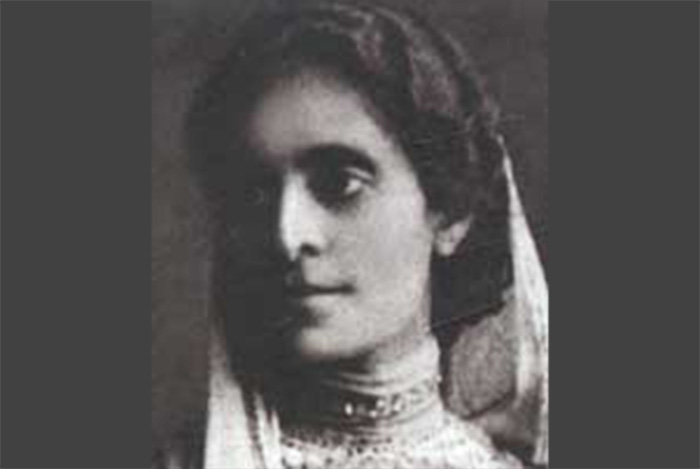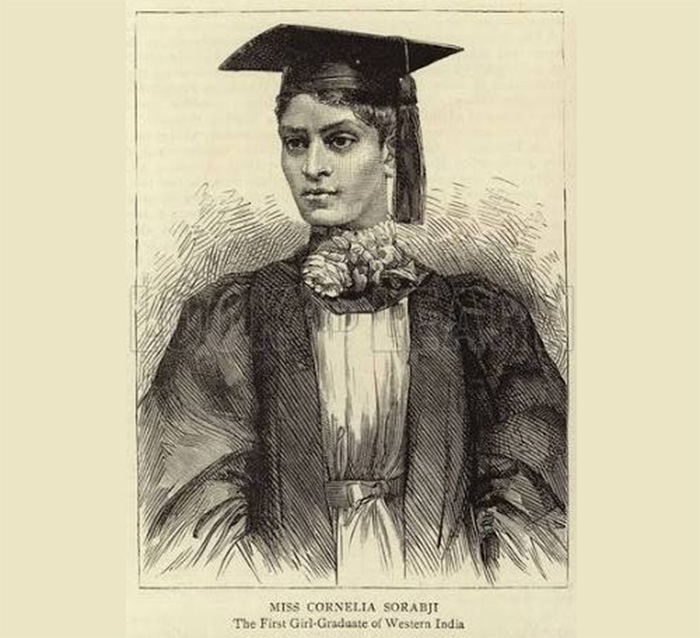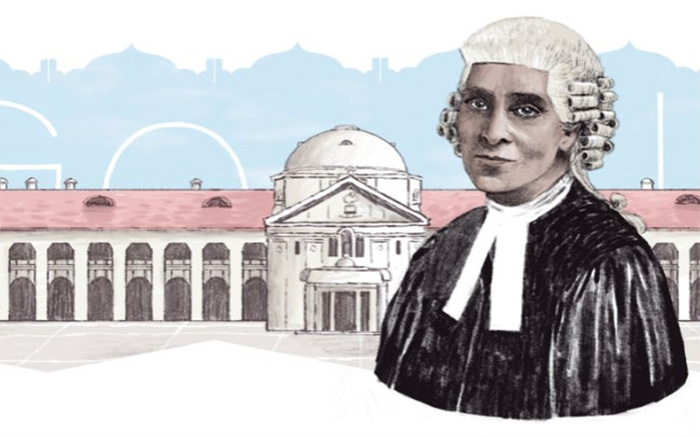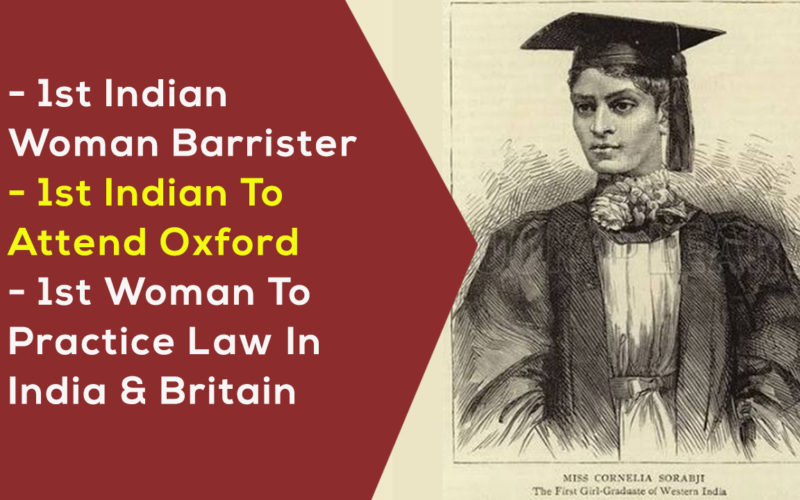- 1.9Kshares
- Share
- Tweet
- Facebook Messenger
“A strong willed little girl will grow to be a strong independent woman.”
This is something we firmly believe in. And, there are women who have become pillars of success and are examples of strength that little girls look up to.
Law — a profession that is dominated by men, women have gone ahead and broken that glass ceiling and taken things head on. There are women whose names have been inked in the books of history and are truly an inspiration to billions.
Today, we’re talking about an Indian woman who has to her name many firsts. One who advocated against gender bias and discrimination and did social work for purdahnashins back in the late 1800s and early 1900s.
https://twitter.com/singh_nirvikar/status/930611507045347328
This is the story of Cornelia Sorabji, an Indian woman who was not only a first Indian woman advocate, but also the very first woman to study at Oxford. And, the first ever Indian to go to Oxford.
Today is 151st birth anniversary of Cornelia Sorabji.
First female to practice law in India and Britain, the first woman to be graduated from Bombay University, and also the first Indian national to study in Oxford pic.twitter.com/Ztn2rxwPpd— Mumbai Heritage (@mumbaiheritage) November 15, 2017
Born in Devlali (Nasik, in erstwhile Bombay) on November 15, 1866, to Parsi Reverend Sorabji Karsedji and his wife Francina Ford, Cornelia had eight siblings. Initially, she spent her childhood in Belgaum and then moved to Pune. She received education at home and at mission schools.
Sorabji’s father was a missionary and a key figure in the society back then. It was because of his perseverance that Bombay University opened their doors to women in their degree programs.

She went to Deccan College, where she topped her final degree examination in 1887. That itself would’ve entitled her to further study in England but she was denied the scholarship. She then took up a temporary job as an English professor at a men’s college in Gujarat.
But she, wanted to gain more knowledge, wanted to study further. So, in 1888, she asked the National Indian Association for help in completing her education. With aid in form of scholarship from Mary Hobhouse, Adelaide Manning, Florence Nightangle and others, that dream also got fulfilled.
She arrived in Britain in 1889 but it wasn’t easy for the only woman to survive amidst an all-men crowd. In an old interview, Sorabji’s 82-year-old England-based nephew, Richard Sorabji told Hindustan Times,
“(On arriving) at Somerville College in autumn 1889, she was denied permission to study law, again because she was a woman. But England’s leading academic, Benjamin Jowett, came to see her, and by February 1890, he had got permission for her to study law.In 1892, the external examiner from London refused, with a week’s notice, to examine a woman. But Jowett, with a day to spare, had Oxford University’s Council override him, under the motion ‘Oxford University shall examine Cornelia Sorabji’.”
She returned to India in 1894, but no one was ready to give her employment. In 1899, in Allahabad, she was refused, a call to the bar, by one casting vote.
“So she invented her own desired job description, and obtained the role she wanted of adviser to the government of India on women in purdah. These women were first child brides and then widows, with children of their own, and large estates, which in widowhood they could not protect, because they could see no lawyer, since all lawyers were male.”
She helped over 600 women and children all over Bengal (West and East), Orissa, Assam and Bihar. She gave LLB examination of Bombay University in 1897 and pleader’s examination of Allahabad High Court in 1899.
In 1902, she started petitioning the India Office to let a female legal advisor represent women and minors in provincial courts. In 1904, she was appointed Lady Assistant to the Court of Wards of Bengal. It was by 1907, due to the need for such representation, she started working in the provinces of Bengal, Bihar, Orissa, and Assam.
Despite all her successes, fights and hard work, she was recognised as a barrister only after 1922, when she collected the degree. The law barred woman from practising and it was only after 1923, when the law changed, she was.

In 1924, Cornelia started practicing law at Calcutta High Court. But, patriarchy was at its prime form back then, and gender bias was something she was battling everywhere. So, instead of pleading before court, her role was confined to preparation of opinion on cases.
Six years later, she retired and moved to London. She had defended purdahnashins from 1922 to 1929 and organised social work by them from 1924 to 1931. It was until 1938, Sorabji continued reporting on social conditions in India.
https://twitter.com/nsaikia/status/930671408769880069
By late 1920s, she became an anti-nationalist. She believed nationalism violated the beliefs, customs, and traditions of the country’s Hindu ‘orthodox’.
She wrote a number of books, short stories and articles. Two autobiographical works of Cornelia are India Calling: The Memories of Cornelia Sorabji (1934) and India Recalled (1936).
During World War II, since 1939, she lived in Lincoln’s Inn (London). And, stayed there until her final illness in 1946. She died in London on July 6, 1954.
On her 151st Birth Anniversary, Google Doodle honoured her.

We laud for Cornelia’s spirit and how she fought her battles in a male-dominated world.
Fact Sources: The Hindu, Hindustan Times
- 1.9Kshares
- Share
- Tweet
- Facebook Messenger




